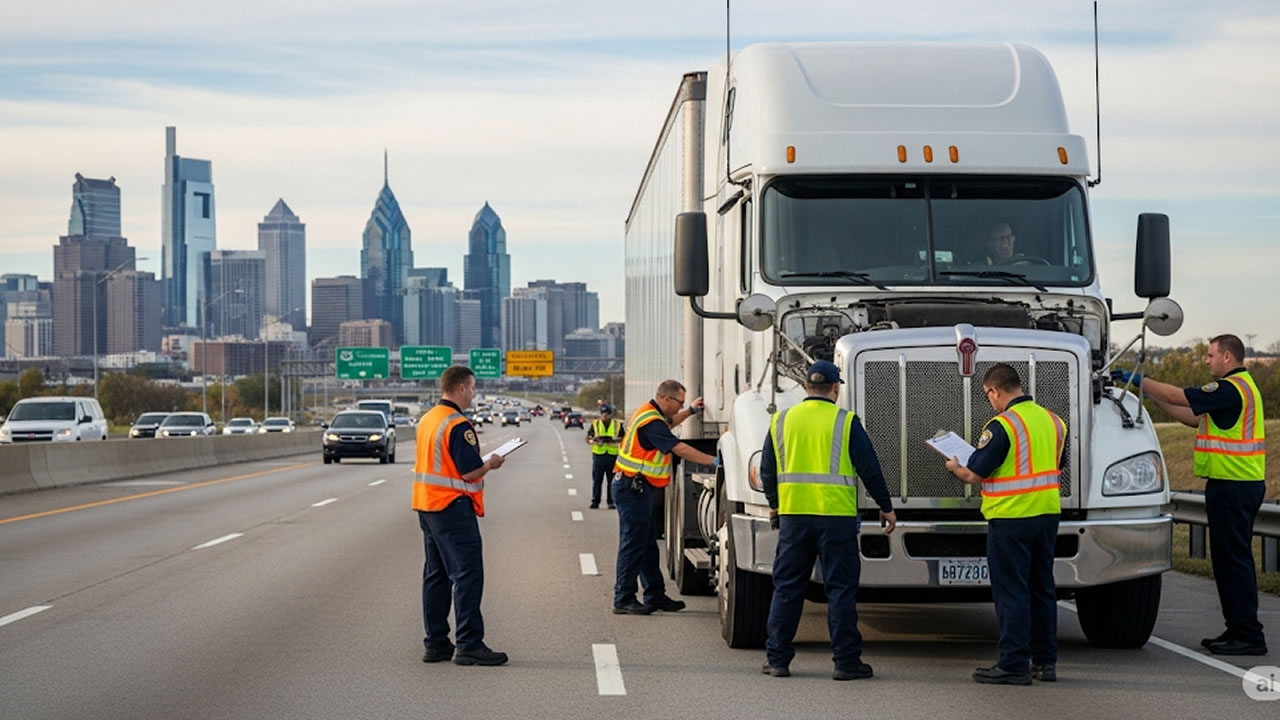What Makes the Philadelphia Metro Area Such an Active Zone for Inspections?
Truck Inspection in Philadelphia Metro Area, Pennsylvania : Not only is Philadelphia historic and a tourist destination in the Northeast, but it is also a major logistics hub that links all parts of the country. Interstates such as I-95, I-76, and the Pennsylvania Turnpike passing through the city make the Philadelphia Metro Area one of the largest inland commercial vehicle arteries in the country. This is why it is on top of the program DOT inspections and FMCSA roadside checks. The region alone has several inspection stations where law enforcement usually sets up mobile units near busy trucking corridors, thus always concerning CDL drivers and fleet operators.
List of Truck Inspection in Philadelphia Metro Area, Pennsylvania
1st Rate Auto & Truck Repair
1801 S 25th St, Philadelphia, PA 19145
Don’s Auto & Truck Repair
222 E Girard Ave, Philadelphia, PA 19125
Pinnacle Auto Repair and Tires
1119 Catharine St, Philadelphia, PA 19147
What Type of Truck Inspections You’ll Be Facing
From Level I full inspections on the way to Level III driver-only checks, every inspection level expects some kind of evidence from both you and your truck. Inspection levels include both owner-operators and fleet operations, usually with inspection types ranging from walking through Level I inspection for all systems from brakes and tires to driver logs and ELDs. Most likely, these other random roadside inspections would also include locations such as King of Prussia, Northeast Philly, and the I-476 corridor. This particular detail makes PA DOT officers really focused on hours of service violations, load securement, and hazmat placarding.
Examples of Common Compliance Errors That Lead to Citations
Some of the major complaints recorded in the Philadelphia Metro Area are vehicle maintenance violations. Inspectors write violations in cases of worn brake pads, faulty lighting systems, and tire issues, among others, after they are found during spot inspections around the city. Drivers who do not keep up-to-date logbooks or misuse the ELD systems are more likely to be in trouble with being cited. Delays and fines are, therefore, inevitable if your DOT number or registration documents are older or nonexistent. Adoption of strict compliance with FMCSA rules at present and faithful adherence to the truck inspection checklist will usually lessen the likelihood of incurring such costly penalties.
How to Prepare for a Truck Inspection in the Philly Area
Preparation is everything. So start with a complete pre-trip inspection of brakes and lights, reflective tape, tires, mirrors, and fluids. Have all your paperwork—medical certificate, registration, insurance, and Form 2290—ready to go. Run an FMCSA-approved ELD system. Make sure your HOS logs are accurate and up to date. It also helps to train your drivers in how to communicate respectfully and clearly with inspectors, which can often smooth the process during roadside safety checks.
Stay Ahead with Preventive Maintenance and Compliance Tools
Staying compliant in the Philadelphia Metro Area means more than just passing through roadside checkpoints. Invest in a solid fleet management system that runs maintenance schedules, inspection records, and driver stats; set it for regular in-house inspections paired with pre-audit strategies for DOT audits since these two may serve direct purposes. For example, whether on local operation or driving OTR, Proactively maintaining safety compliance, vehicle readiness, and documentation accuracy protects your CSA score and helps keep them rolling through the Keystone State.
Disclaimer: The information provided in this blog post is for general informational purposes only. While we strive to keep the content accurate and up-to-date, we do not guarantee its completeness, reliability, or accuracy. Any actions you take based on this information are strictly at your own risk. We are not responsible for any losses, damages, or inconveniences that may arise from the use of this blog. For professional advice, please consult a qualified expert.


